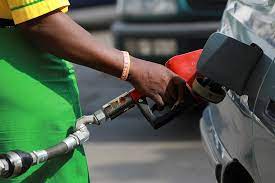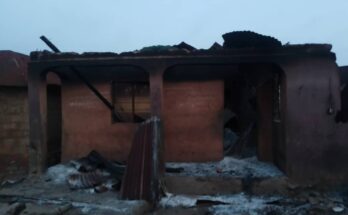The removal of subsidies on the Premium Motor Spirit (PMS), otherwise known as petroleum, has taken its toll on Nigerians; TOPE SUNDAY writes.
President Bola Tinubu in his inauguration speech on May 29 said there was no budget to continue the payment of fuel subsidies and his pronouncement led to the hike in fuel price from N195 per litre to N537 in the first week of the declaration.
To this end, transport fares and the prices of essential goods and services skyrocketed throughout the country, burdening Nigerians with far-reaching consequences. However, as it stands now, the fuel pump price is sold between N614, N615, and N617 per litre at petrol stations, owned by the Nigeria National Petroleum Company Ltd. (NNPL).
Fuel attendants recount experiences
Prior to the removal of subsidies on PMS, some fuel stations were selling for 24 hours, while others closed around 11:00 pm in Abuja. However, the development is taking a toll on some of the fuel stations in the Federal Capital Territory (FCT).
A fuel pump attendant at AA Rano in Jabi, who asked not to be named in print, told Blueprint Weekend that some of her customers who used to have their car filled up before the subsidy removal now buy between 10 and 20 litres.
She said: “Unlike what we experienced in the past, we now see our customers buying 10 litres, while at the maximum, some of them would buy 20 litres. This is surprising to us. Also, the little change they usually left for us is no longer there.”
Another attendant at AYM Shafa Petrol Station, Jahi, who preferred anonymity, told Blueprint Weekend that the removal of the subsidy on PMS is affecting his income, adding that with the development fuel is available.
“We sell for N614 per litre. Now, there is no extra income like we used to have during fuel scarcity. Also, we stay up till late in the night to make more sales, unlike when we closed very early in the evening and could even stay closed for days. These days, we are asked to be friendlier with our customers,” he said.
Speaking with our Reporter, a dealer, Dr. Larry Daniel, who operates Total Energies Fuel Station in Kubwa, debunked the insinuation that some fuel stations were selling for 24 hours because of the subsidy removal. He said some fuel stations were projected for 24 hours.
He said: “We sell for 615 naira, and why do we see some stations stay late in the night now? It is because some stations are projected to work for over 24 hours. So, it’s not because of the subsidy they started selling it like that. In Total Energy we have some stations that sell for 24 hours because of the area where they operate, they are an area inside the town, and they sell 24 hours every day. Also, during the scarcity it is not that some fuel stations hoard, Total doesn’t hoard fuel because anything that is given to us is in a manifest from the depot that everybody will see it”.
John Musa, a resident, blamed the president for the hardships, “It is scary that President Tinubu who had always insisted that he would remove fuel subsidy on his ascension to office, had zero plans to contain the effects of such removal. And his only reaction is to fall back on Buhari’s mysterious money transfer to the poor and the vulnerable.”
“This doesn’t inspire much confidence. I think there’s something inherently bad with successive governments of Nigeria. It seems each new one gets worse than the previous ones. It’s sad, but it’s true.”
Also speaking, Mr. Alhassan Jubril, a resident of Lugbe, lamented that he is now spending more on transportation, saying that he spends an average of N1, 500 on transportation daily contrary to between 600 and N800 before.
“It is becoming too difficult in the FCT for some of us. Daily, I now spend up to N1500 on transportation alone. This does not cover any other expenses. Something must be done urgently to address the growing challenges in the country.
For his part, a Chef, Patrick Joshua, who lives in Jahi District and works at Katampe Extension, said he bought a motorcycle to reduce the transportation cost, adding that riding a motorcycle to work is cost-effective.
“I decided to buy a motorcycle to ease off my movement to work and to cut down on transportation expenses. Before the subsidy removal, I was spending N300 to work, but after the removal, I was spending N500 for going to work, and when I was returning, it was the same amount. My salary has not been increased, and for me to have huge savings, I needed to devise another means out of the subsidy palaver. That was why I opted for the motorcycle as an option for me.”
Also speaking, a teacher, Michael Tofunmi, who does online lessons, said he manages N5, 000 fuel for five days to attend to his students.
“Before now, N5, 000 fuel was enough for me throughout the week, but now with the new fuel price as a result of the subsidy removal, I strictly use the fuel to teach my online students. For now, I am on my generating set for two hours in a day, which is contrary to the era when my generating set would work for almost eight to ten hours in a day.”
Growing transport fares
Meanwhile, there are lamentations that there would be an unending increase in transport fares as fuel stations hiked the pump prices of petrol following the official increase in the prices, and they called on the government to reconsider the subsidy removal in the interest of the masses.
According to them, the high cost of transportation fares will affect the prices of goods and services in the markets, which will affect the purchasing power of ordinary Nigerians.
A resident of Gwagwalada, Mr. Abraham Gado, said transportation fare to Area 1 from Gwagwalada now goes for N1, 000 as against N400 hitherto, saying that oil marketers are also not fair to Nigerians.
“The oil marketers are also not fair to Nigerians; barely hours of the subsidy removal’s announcement, had they just jerked prices of petrol without exhausting the old stuck. I plead with the government to please rescind this decision and reverse the old price to cushion the hardship that has started,” Gado said.
Also speaking, a resident of Abaji Area Council, Mrs. Juliet Lewis, said the average Nigerians have been seriously affected “because once the price of petrol increases, the prices of everything will go up in the markets.”
She said farmers in remote areas with difficult terrains would subsequently increase the prices of their farm produce.
“I join millions of Nigerians to call on the new government to have a rethink on the fuel subsidy removal,” Lewis said.
Another resident of Kuje Area Council, Salisu Sabo, said he could not believe that the transportation fares would increase so suddenly.
He said the new policy caught him unawares and had made it difficult for him to attend the programmes he earlier planned for, aside from his official duties.
“I paid N500 to get to Lugbe this morning as against the previous price of N200. This time around, one has to plan well and manage the little money he or she has to avoid embarrassment,” Sabo said.
A civil servant, Mr. Johnson Anibe, said he paid N900 to get to his office in the morning as against N300, adding that on his way home he would pay more because of the rush hour.
Subsidies: As Nigerians lament…




